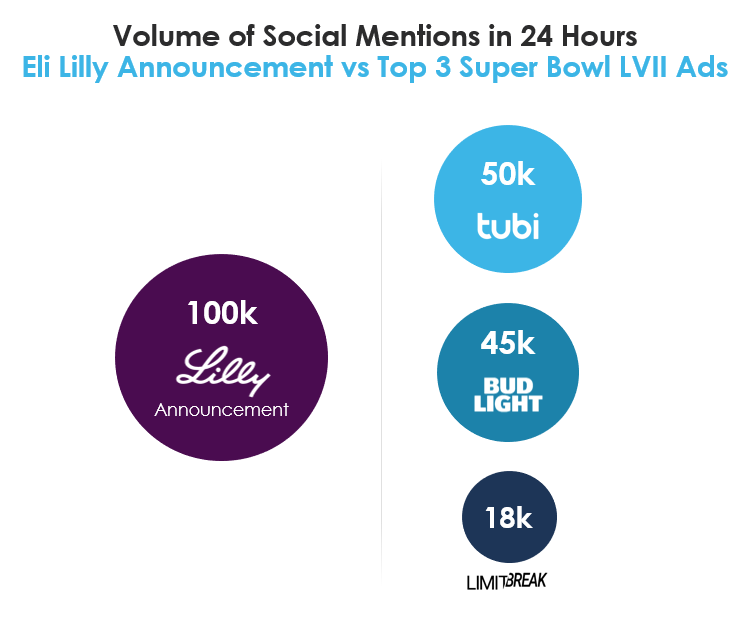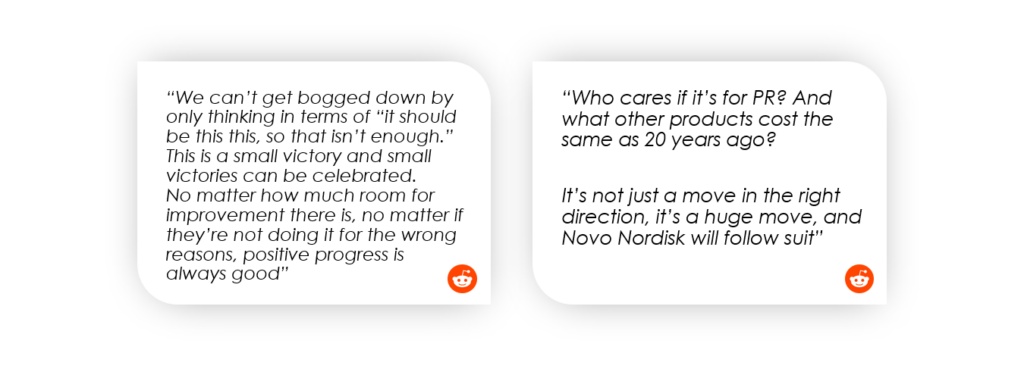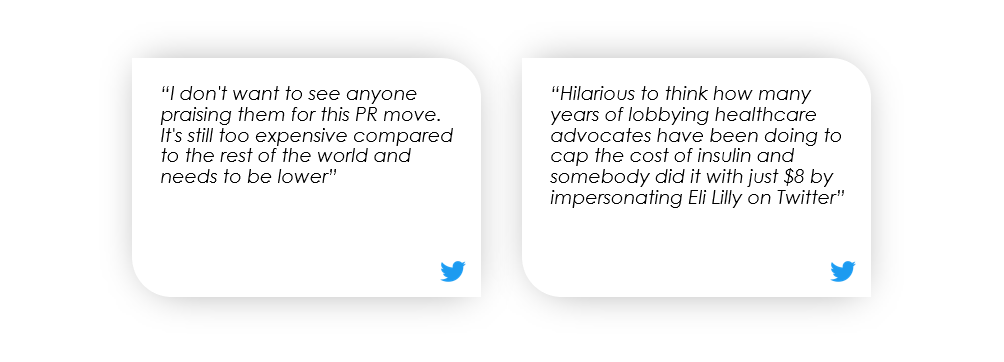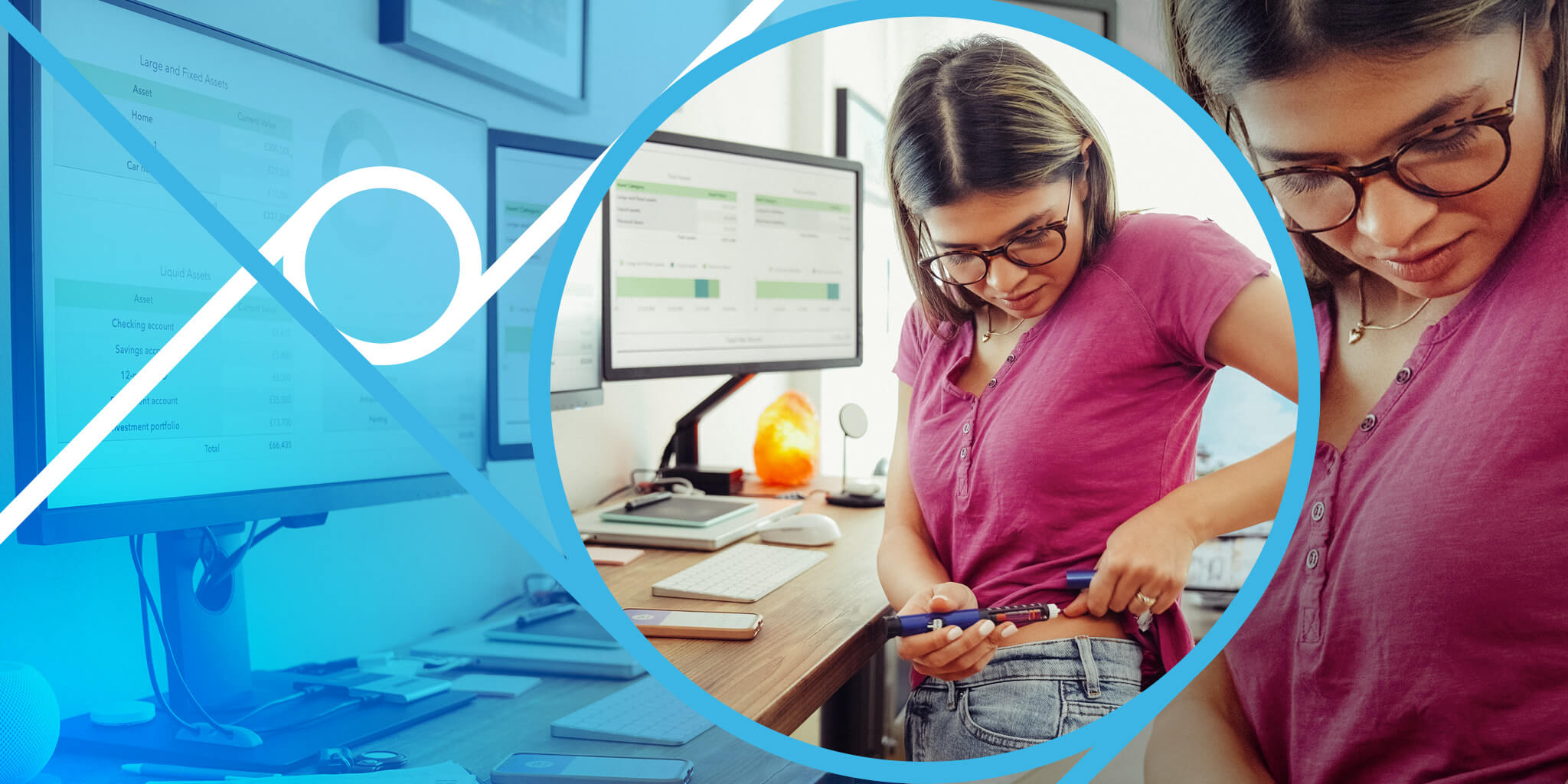Last Wednesday, pharmaceutical company Eli Lilly announced they would be cutting the price of its most commonly prescribed insulins by 70%, capping it at $35.
The news elicited a flurry of responses from the public, generating nearly 100k mentions on social media in 24 hours; for context, that’s more conversation than any Super Bowl ad generated this year during the same time frame.

The announcement was largely met with praise from insulin users and the general public alike, unsurprising given that roughly 1 in 10 Americans have been diagnosed with diabetes (over 30 million people). Incidentally, just two years after insulin was first invented in 1921, Eli Lilly became the first manufacturer to mass produce the life-saving drug.
The news also generated praise from folks on both sides of the political aisle, as affordable drug coverage is one thing most people can agree on, with Redditors commenting on how long it took to make this happen and applauding a move that will help people. Following the move, Danish drugmaker Novo Nordisk also recently announced that they would start cutting their U.S. insulin prices by 75% starting Jan 1 of next year.

However, while the general public was initially pleased with the drug manufacturers’ decision, there seems to be an evident lack of trust in big pharma across all social platforms and political affiliations. Others demanded similar price reductions from other leading insulin manufacturers.
Additionally, in response to the announcement, diabetics and the wider population agree that consumers shouldn’t have to thank companies like Lilly and Novo because it took them so long to cut their prices and that their recent move was to keep in compliance with the Inflation Reduction Act. Many feel the drug manufacturers’ decision was more reactive than a proactive change to benefit consumers.
Others believe the initial move to lower prices was partly motivated by a fake verified Eli Lilly account that announced in November that insulin would now be free. The fake tweet skyrocketed Eli Lilly’s social mentions by 500% and has led to public petitioning of the company to lower their prices.

While many are glad that these two major drug manufacturers are selling their insulin at an affordable price, all eyes are on the rest of the pharmaceutical companies to see if they will follow suit by lowering their insulin prices and the cost of other life-saving drugs and devices (e.g., EpiPen, inhalers, etc.). As we look towards the future, the social researchers at MarketCast will continue to monitor social conversations and engagement as the conversation develops.
For more information about MarketCast Healthcare Research, Consulting & Social Analytics, contact us.


